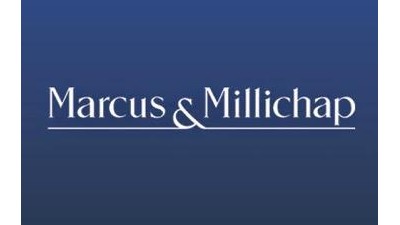As Multifamily Rents Soften, Investors Turn To Net-Lease Assets

New York City multifamily rents continue to soften. In June, the median asking rent for a one-bedroom apartment dropped 3.1% compared to last year, and fell 15.1% from its peak in March 2016, Business Insider reported. Investment sales have also slowed across multiple asset classes, down 50% from the peak of the market in 2015.
The slowdown has prompted many investors to turn toward net-lease properties. Net-lease assets are properties for which tenants pay the taxes, insurance fees and maintenance costs instead of the landlord, in addition to rent. Already in high demand and short supply, net-lease offers investors steady returns on investment and a hands-off approach to management.
“The main motivations [for net-lease assets] are stability, long-term predictable returns and a lifestyle change,” Marcus & Millichap broker Karly Iacono said. “We are seeing tenants trade out of assets that have softened in the New York Tri-State area, like multifamily, into net-lease properties throughout the country to increase their cash flow and diversify both through product type and market. They are no longer involved in the property and are getting those predictable returns without fluctuations in their rent rolls.”
The appeal of individual net-lease properties depends more on the creditworthiness of the tenant than the geographic location. Iacono recently began fielding sales offers for a Home Depot in Euclid, Ohio. Numerous potential buyers were multifamily and industrial investors from the Tri-State area.
"The Euclid Home Depot is being marketed with a 6.25% cap rate, which offers a higher return than an investor would get on multifamily," Iacono said.
Cap rates across New York City multifamily properties are currently at 3.8%, according to NREI.
Similar to Home Depot, chains like Costco, Walmart and Starbucks are in high demand. These retailers are all investment-grade tenants with a high ability to repay their outstanding debt obligations. They have also continued to perform well as e-commerce players continue to grow their market shares, offering investors stability in a changing retail landscape. Quick-serve restaurants also remain a hot part of the net-lease market due to their internet-resistant nature.

Although rising land prices and long project approval timelines tend to constrain the supply of new net-lease properties, the number of assets for sale increased more than 13.6% in Q2. For office assets, in particular, net-lease properties for sale increased 12.1%. Industrial was the only sector in which the number of net lease properties declined, dropping 9.77%.
“There’s certainly still a focus on development if the projects can be approved and the right sites found,” Iacono said. “There are a good number of tenants looking to expand, but there is more of a focus on ‘A’ locations and primary markets, which makes securing sites difficult."
Concern over rising interest rates could be behind the increase in net-lease inventory, prompting some owners to sell their assets.
"The rise of interest rates is putting upward pressure on cap rates, which is causing the pricing spread between buyers and sellers to widen,” Iacono said. “Sellers who may have been considering selling in the next five years are realizing that the time is now. Properly priced net-leased assets are moving very quickly whereas the sellers who are wishing for 2015 pricing are watching their assets sit.”
In addition to investment-grade retail tenants, other net-lease asset classes have increased in popularity. Single-tenant office and industrial buildings have seen a rise in sales activity, as investors look to diversify. Medical net-leases, which comprise properties like stand-alone urgent care centers and emergency rooms, have also seen an increase in sales activity, especially among assets leased by major hospital systems. While some smaller groups of doctors have started to establish stand-alone urgent care practices, those assets remain risky for net-lease investors because the tenants are not proven.
This feature was produced in collaboration between Bisnow Branded Content and Marcus & Millichap. Bisnow news staff was not involved in the production of this content.

